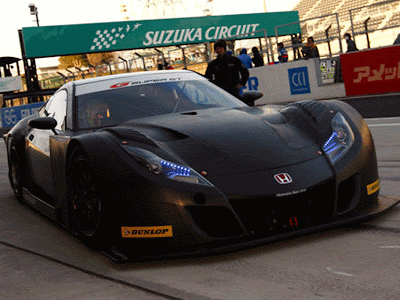Courtesy Jean-François Ouellet
Montreal, Canada – April 25, 2006 – Sportimage.net – Just before the official start of the season and its schedule for 2006, Fédération de Sport Automobile du Québec and its members are proud of the changes that took place since the beginning of the year. Since January 2006, a new kind of wind is blowing on the FSAQ, bringing in a new name, a new logo, development of new programs and a new General Manager.
The federation, which has been managing and guiding part of the Québec motorsports scene like track racing, karting, Solo and ice racing, has just set new guidelines with the nomination of a new general manager and the appointment of directors to sport commissions. So it is with renewed optimism that the various FSAQ leaders are moving ahead and pushing training, educational, development and safety programs in each one of its disciplines.
General manager since last October, 38 year-old Jean-François Ouellet is running the sports organization where numerous challenges are awaiting. He is optimistic about supporting and managing part of our motorsports. “The number of people involved in motorsports in Quebec keeps growing, whether it is for fun or to make a career of it. And since it is increasingly difficult to reach the top levels of motorsports like Formula One and Champ Car, the fans are turning to us to get their kicks, in track racing, Solo or karting. Our job, among other things, is to help track owners, teams, clubs and driving schools to take them in and help them,” said Jean-François Ouellet.
Previously known as Fédération Auto Québec, the federation underwent through rebirth in January 2006 and changed its name to Fédération de Sport Automobile du Québec. In the same stride, it adopted a new logo, more modern and dynamic. “Like any other business, we had to have a younger look. The new name emphasizes the kind of activities we deal in. We are proud of these changes,” the new general manager pointed out.
More present…
Representing national sanctioning body ASN Canada FIA in Quebec, Fédération de Sport Automobile du Québec, which issues nearly 1,000 licenses annually, just undertook a major turnaround. FSAQ plans to be more visible during racing events. “One of FSAQ goals this year is to work together with the industry and to listen to their needs,” said Daniel Forest, president of FSAQ. “Our presence will be essential, in order to better know and understand these needs,” he added.
FSAQ wants to regain its position as the provincial motorsports authority. In order to learn more about this new orientation FSAQ is taking in 2006, Jean-François Ouellet has gracefully agreed to answer our questions.
How do you envision motorsports in Quebec? How would you rate it?
As I mentioned, Québec and Canadian motorsports are doing very well. Each year, Québec hosts two of the most honored racing events in North America from Formula One and Champ Car. We have other great events like Grand Prix de Trois-Rivières, the historical event of Québec motorsports and ice-racing event Challenge Continental sur glace de Sherbrooke. Every year, Québec hosts a slew of important motorsports events, and the population is right with us. This year, the sheer huge number of events and participants, for fun or competition, confirms the interest for this type of sport: in 2006, FSAQ, in conjunction with ASN Canada FIA, will sanction more than 30 events.
You are young and you just got nominated to the position of general manager. In the past, Fédération de Sport Automobile du Québec has made decisions that were not always unanimously approved. How do you see your role and the coming year?
I like peace and I enjoy bringing people together. I consider my job and that of FSAQ like that of a bandleader whose goal it is to help those in the various disciplines get answers to their needs while abiding by the rules.
In 2006, FSAQ will help sanctioned events, but will also set up, in each discipline, training, educational, development and safety programs. For FSAQ, there are no small or big players, only players. This way, our involvement will be the same in each discipline.
What can you tell us about the new training, educational, development and safety programs?
The training program involves flaggers, as well as drivers and managers. They all do their thing with diligence and passion, and they all dream of learning more. So our continued program will allow them to keep improving their skills. The educational aspect is very wide and will reach everyone involved with FSAQ. And we are also working on a standardization program for driving schools and racing officials.
In the first stage, the development program will deal with communications, promotion and awareness. As a matter of fact, our brand-new website is part of this development. Feel free to explore it at
www.fsaq.qc.ca. Finally, since safety is the utmost in motorsports, we are working closely with the ministère de l’Éducation, du loisir et du sport on a safety standardization project for motorsports.
In 2006, FSAQ wants to create a synergy among all those programs.
You seem very optimistic and enthusiastic about all these programs and FSAQ new communicative approach. In truth, what does it all represent?
First, we demand more transparency. Right now, we are talking about more efficient communications. Second, motorsports come from the people and we have to win back that aspect of the sport that has been lost to the commercial side. To transmit this passion, one has to be passionate. The role of FSAQ will be to establish solid links with the community. This function suits me very well. A media and public relations campaign will be very important. Indeed, 2006 is an important year, and we have to make people work and grow together. We are not trying to reinvent the wheel, but we need to bring new support to the people who have the power to take important decisions with us.











No comments:
Post a Comment